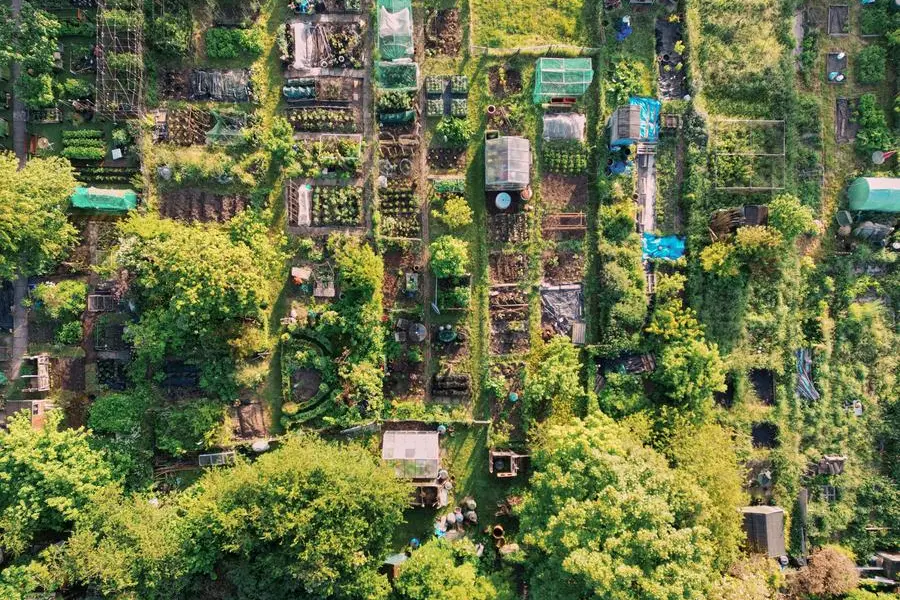PHOTO
Global climate leaders attending a ceremony in Abu Dhabi praised the UAE's leadership for their critical role in securing a groundbreaking framework for future climate action at the Conference of the Parties to the United Nations Framework Convention on Climate Change (COP 28) last year.
Hosted by President His Highness Sheikh Mohamed bin Zayed, the event honoured several global dignitaries who played a key role in the success of the conference that resulted in the historic UAE Consensus, which has become a key framework for global climate action and sustainability.
Speaking to the Emirates News Agency (WAM), the dignitaries expressed their gratitude for the UAE's leadership and commitment to addressing the climate crisis.
Saqib Huq, Managing Director of International Centre for Climate Change and Development (ICCCAD), and son of Saleemul Huq, who was present to accept the First Class Order of Zayed II in place of his late father in Abu Dhabi, expressed deep appreciation for the UAE leadership, and acknowledged the significant progress made since COP28 ended.
Saqib Huq hailed the successful start that was achieved during COP28 with the immediate operationalisation of the Global Climate Fund for Loss and Damage. “This rapid progress underscores the importance of political will, collaboration, and open communication in tackling the climate crisis.”
He doubled down on the importance of avoiding lengthy bureaucratic processes that hinder resource delivery. “The Fund should prioritise channelling support directly to local communities, grassroots organisations, and indigenous peoples.”
Looking ahead, Saqib Huq said that COP29 is expected to “place a strong focus on climate finance. A key agenda item will be establishing a new, significantly higher collective quantified goal for climate finance, exceeding the previous target of US$100 billion annually.”
“The resounding message is clear: the focus must be on supporting local communities, as they possess the necessary knowledge and context to address their specific needs,” Saqib Huq stressed, noting that the role of external actors lies in facilitating local leadership and scaling up impactful initiatives.
“By empowering communities and ensuring swift delivery of resources, the world can turn the achievements of COP28 into tangible progress on the path to a more sustainable future,” Saqib Huq concluded.
Hailing the recently concluded COP28 as a success in strengthening multilateral climate action, Ambassador Pedro Luis Pedroso Cuesta, former Chairman of G77 and China, Cuba, who led the group during the negotiations, emphasised the importance of both process and substance in achieving tangible results.
Ambassador Pedro highlighted 2023 as a crucial year for solidifying the multilateral framework for climate change negotiations. He stressed the importance of inclusivity, ensuring all nations, regardless of size, feel ownership over the process and its outcome, commending the UAE's leadership in fostering trust and collaboration throughout the year.
The Ambassador stressed that COP28 yielded a significant package of decisions, including the operationalisation of a long-sought Global Climate Fund for Loss and Damage. He emphasised the need for a new, collective, and quantified goal on climate finance, aligned with developing countries' needs and existing multilateral agreements.
Looking Ahead to COP29, Ambassador Pedro stated that financing remains a central concern for developing countries as they prepare their next round of Nationally Determined Contributions (NDCs).
“Without clear commitments for financial support, nations will struggle to enhance their climate action efforts and transition to sustainable development models,” he said, underscoring the importance of addressing this critical issue in the lead-up to COP29 in Azerbaijan.
For his part, Prof. Carlos Lopes, Chair of the African Climate Foundation Board, stressed that COP28 marked a significant turning point in global climate action, characterised by unprecedented levels of participation and inclusivity.
This focus on collaboration yielded tangible outcome, with the operationalisation of the Global Climate Fund for Loss and Damage being a key achievement, he said, adding that “this fund acknowledges the historical burden placed on developing nations by climate change and provides resources for addressing its irreversible consequences.”
Beyond specific initiatives, COP28 fostered a crucial shift in diplomatic discourse, Prof. Carlos Lopes explained. “Previously taboo topics were embraced through skillful negotiation, opening the door for greater transparency and participation by civil society and the public.”
Prof. Carlos Lopes highlighted financial commitments as another critical element of COP28's success. “Recognising the importance of financial support for vulnerable nations, the conference prioritised mobilising resources, and this focus reassured African countries, which are disproportionately impacted by climate change, that their concerns were being addressed,” he said.
Prof. Lopes stated that the innovative Troika arrangement, spearheaded by the UAE, Azerbaijan, and Brazil, offers a vital safeguard for the momentum established at COP28. “This collaboration ensures continued focus on the ‘UAE Consensus' and fosters hope for continued progress towards climate stabilisation,” he concluded.





















